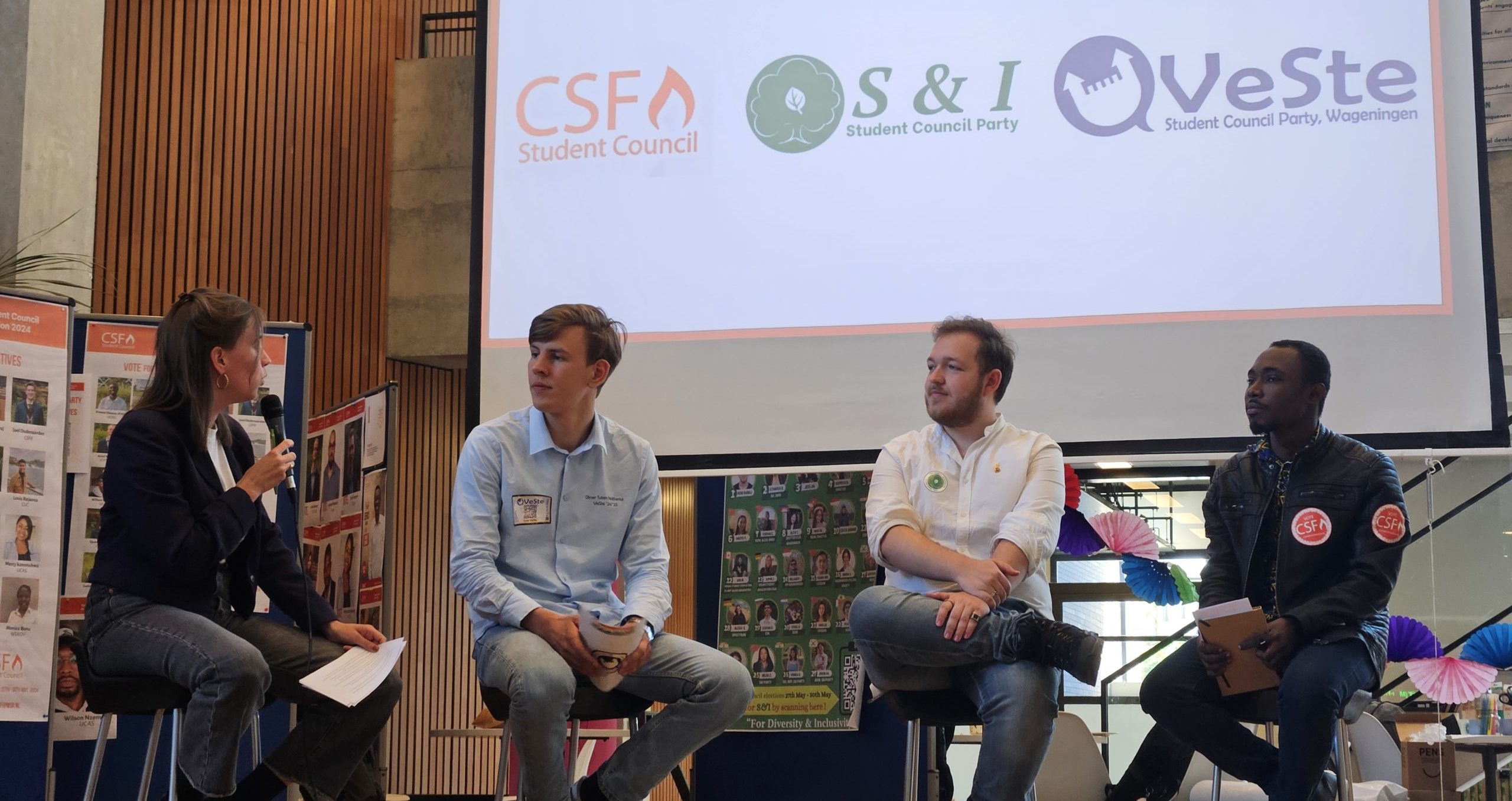Voting stations for the student council elections are open from Monday, 27 May, to and including Thursday, 30 May. Yesterday afternoon the party leaders of VeSte (Verenigde Studenten/Students United), S&I (Sustainability and Integration) and CSF (Christian Student Faction) entered into a debate on the Forum stage.
Make cafeterias affordable
The three party leaders were each permitted to provide one statement on which they would debate. S&I’s Reni Nanaj kicked off the debate. His address focused on the statement ‘make cafeterias affordable to students’ CSF’s Ernest Owusu-Ansah agreed because ‘students should have access to healthy meals without financial worries.’ VeSte disagreed. Party leader Olmer Tutein Nolthenius posed that ‘inflation is a fact’ and that lower prices could affect the quality of the food. However, he acknowledged that students more often bring their own food to the campus and argued in favour of more microwaves on the campus so students can heat their meals.
Meeting spots such as flat pubs contribute to an environment that encourages students to flourish both academically and personally
VeSte’s OlmerTutein Nolthenius presented the second statement. He argued that the university is responsible for social meeting spots. ‘Students’ mental health leaves much to be desired, as a result of loneliness, among other things.’ Social meeting spots such as flat pubs ‘contribute to an environment that encourages students to flourish both academically and personally’, according to VeSte. S&I and CFS agreed. Nanaj called for more meeting opportunities in addition to meeting spots. Owusu-Ansah called the Sumnmervibes campus festival an excellent example of an event organised by the university where meeting and socialising are key. ‘Let’s organise more such events.’
The university should promote board work by providing credits
Ernest Owusu-Ansah, CSF, provided the third statement, which focused on board work. ‘The university should promote board among students, for example, by giving study credits to students sitting on a board.’ This, too, was a statement supported by all parties. Tutein Nolthenius: ‘VeSte ios in favour of extracurricular activities, and committee or board work are important examples of such activities.’ Nanaj proposed allowing students to trade some of their optional courses for board work. ‘This would enable students who now feel they lack the time because they need to get sufficient credits to opt for sud work.’
Largely in agreement
Owusu-Ansah looks back on the debate positively. ‘It was interesting to see we agree on many issues. These are topics on which we can work constructively in the coming year.’ Nanaj agreed: ‘I saw that we are largely in agreement, save for a few minor issues.’ Tutein Nolthenius said the parties perhaps agreed a little too much for this to be called a debate. ‘It was a good talk but may not have served to make the differences between the parties sufficiently clear. Ultimately, however, we all want what is best for students, although we may differ in our perspectives.’
WUR students can cast their vote through WebElect until Thursday, 30 May, 23:59 hrs.

 The party leaders in debate. From the left next to the host: Olmer Tutein Nolthenius (VeSte), Reni Nanaj (S&I) and Ernest Owusu-Ansah (CSF). Photo Resource
The party leaders in debate. From the left next to the host: Olmer Tutein Nolthenius (VeSte), Reni Nanaj (S&I) and Ernest Owusu-Ansah (CSF). Photo Resource